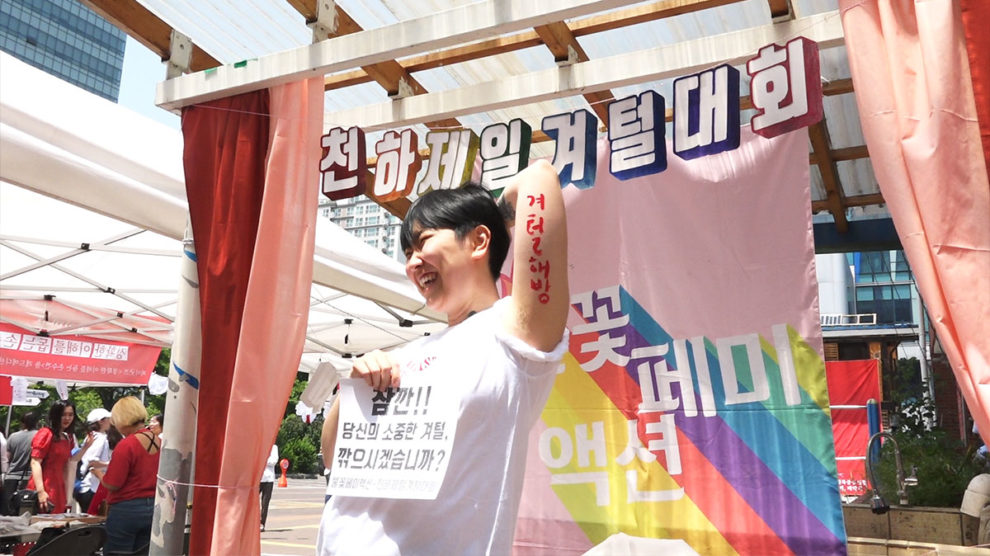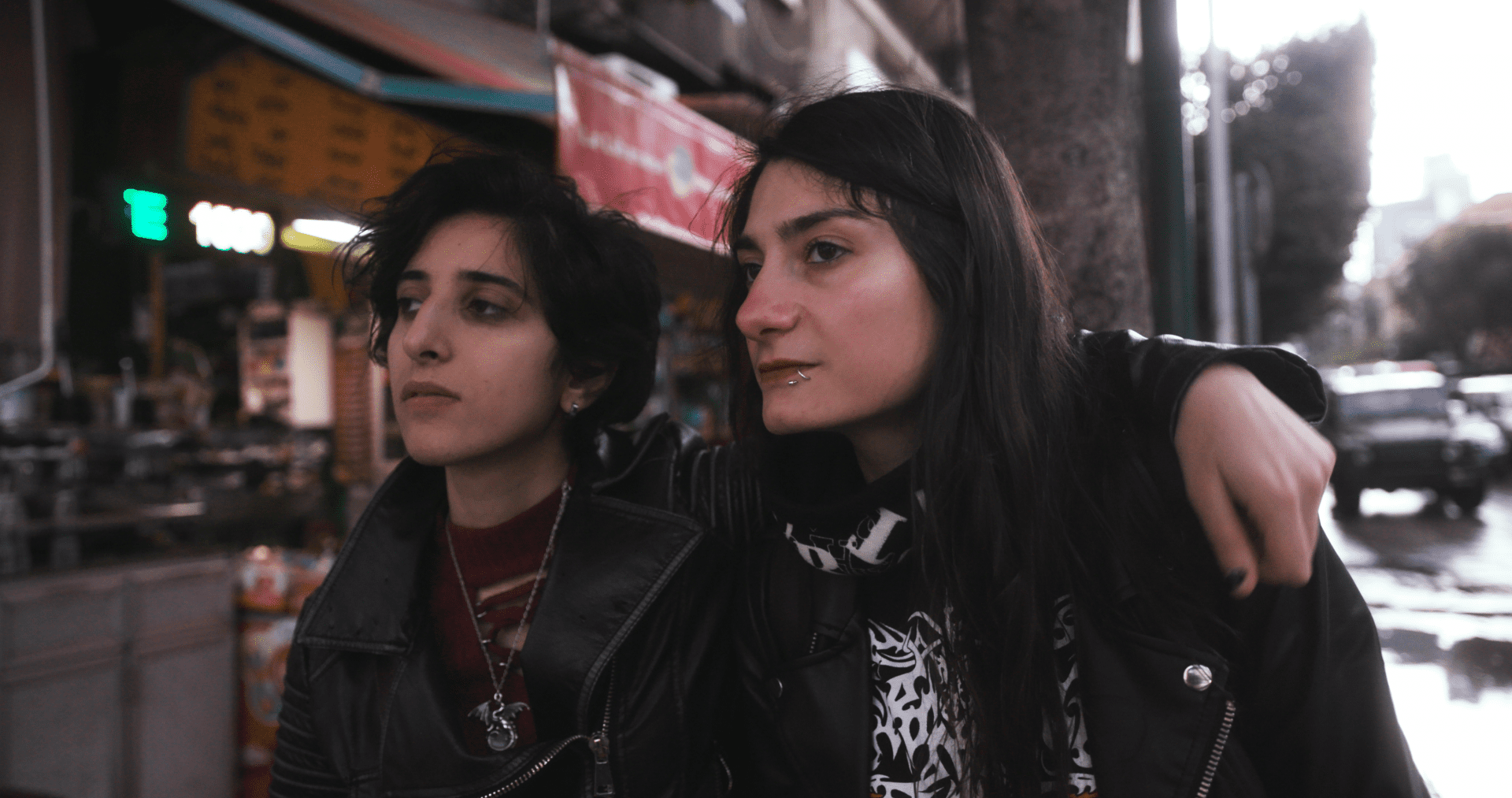“Boundary: Flaming Feminist Action” is a diary-like documentary about the history of the South Korean feminist movement and more precisely, the Flaming Feminist Action, a group of which director Yun Ga-hyun is a member. Through interviews with three of the organization's creators and driving members, Lee Ga-hyun, an activist and politician, Kim Se-jung, a public labor attorney, and Mihyun, a women's and gender studies scholar, we learn about Flaming Feminist Action. Initially, the group is created as a safe space where women labour activists can play basketball and hang out, but it becomes more political and feminist after the gruesome Gangnam toilet femicide in 2016. After that, the women start organizing protests and different public actions through which they aim at weakening the conservative and misogynistic bases of Korean society
“Boundary: Flaming Feminist Action” is screening as part of Women Direct. Korean Indies! – Korean Women Independent Film Series at the Hong Kong Arts Centre

In “Boundary: Flaming Feminist Action”, Yun Ga-hyun chooses to use a pretty minimal technical palette. The majority of the movie consists of interviews with the three women who sit in front of a white background. Though each of the three is interviewed separately, it seems to be done with the other two standing behind the camera (at one point, we seem to hear the voice of one of them, and a sweet credit scene in which the three of them take photos with the director). The interviews are interspersed with footage of protests and other activities organized by them. There are also some media footage from protests, but it is not much, and it is mostly about the earliest chapters of their history. After that, the media forgets about them, except when the women organize events they considers scandalous, such as when they protest against the fetishization of the female body by showing their breasts. The media, just like most men in Korean society, objectifies them and uses them however they sees fit.
Yun's movie doesn't pretend to be an objective documentary (if such a thing is even possible) and doesn't give the opposition a voice. And that is a good thing, because they don't deserve their voices to be heard. Yes, some of the actions by the activists are pretty radical and there is small chance they will be accepted by society at large, nothing to say about the haters and misogynists, but that is not the point. The point, I think, is to have their voices heard and the detractors to know that the activists are not afraid. The oppressors should not be allowed to speak, they should be silenced, and even better – ignored and acted like they don't exist. And the movie makes a great job at doing that.
Yun Ga-hyun is very close to the three women she interviews, so they are very forthcoming and open to her. They cry and laugh together during the long interviews, each of which has taken more than four hours to record. Witnessing them, we can feel not only the bond between them, but also the solidarity they have for each other and the causes they stand for. That's right, though they come from the same group, they have different views and different approaches towards feminism, feminist action, and what activism entails. In other words, they are great representatives of the variety and individuality within the activist circles, opposite to the way the media usually chooses to portray them (as masses with blurred faces) or their detractors speak about them. Yes, Gahyun, Sejung, and Mihyun stand for the same principles, but each one of them understands, interprets and practices them in slightly different ways. This benefits the documentary greatly, because it adds variety and different viewpoints about the group and its activism.
The three women are also very self-reflective, which gives depth and nuance to their stories. They are aware about the tension between being women and almost unconsciously wanting to cater to society's expectations of them, but at the same time remind themselves that they are feminists and as such, must work to shatter these expectations. At one point in the movie, Gahyun tells us that one summer, she wanted to shave her body hair, because she is a woman and that is what is expected of her, but then realized that as a feminist, she should not do it. After all, it is all for the pleasure of the men watching her, not for her own comfort. So, using her own experience and body as a tool for revolution, she decides to organize a competition for best armpit hair.
“Boundary: Flaming Feminist Action” is a highly informative and engaging diary of the the history of one of Korea's most active and radical feminist collectives. And now that the highly conservative person with a radically anti-feminist new president has chosen an extreme anti-gay Christian fanatic who compares homosexuality to the plague as his advisor, there isn't better time to watch this movie and learn about the important deeds of the collective.















